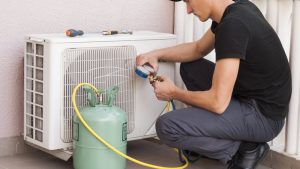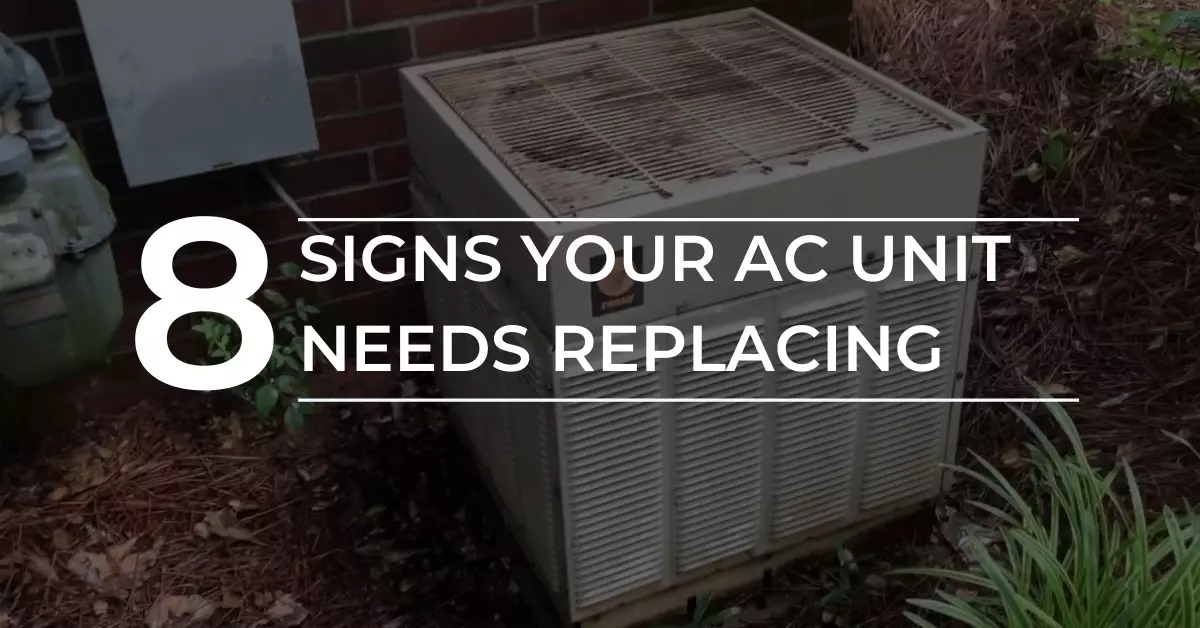How to Know When Your AC Needs Replacing
Is your air conditioning system not performing as efficiently as before? Are you wondering whether it’s time to replace your AC unit? As the temperature rises, having a properly functioning air conditioner is crucial for your comfort. In this article, we’ll guide you through the signs that indicate it might be time to consider replacing your AC unit.
Signs Your AC Might Need Replacement
Regular maintenance and timely repairs can extend the lifespan of your air conditioning system, but there comes a time when replacement is the best option. Here are some telltale signs that your AC unit might need replacing:
1. Age of the System
AC units have a lifespan of around 10-15 years. If your system is approaching or has surpassed this age range, it’s worth considering a replacement. Older systems are often less energy-efficient and more prone to breakdowns.

2. Decreased Cooling Efficiency
Are you noticing uneven cooling, hot spots, or a general decrease in cooling performance? This could indicate a worn-out AC that’s struggling to keep up with demand. Newer models are designed to provide more efficient and consistent cooling.
3. Escalating Energy Bills
If your energy bills have been steadily increasing despite consistent usage patterns, your AC unit might be the culprit. Older systems tend to be less energy-efficient, leading to higher utility costs. Investing in a modern, energy-efficient AC can save you money in the long run.
4. Frequent Repairs
Are you constantly calling for AC repairs? While minor issues can often be fixed, frequent breakdowns and costly repairs can add up over time. Assess the cumulative cost of repairs and compare it to the cost of a new AC unit.
5. Unusual Noises and Odors
Strange noises, such as grinding, squealing, or banging, can indicate serious problems within your AC system. Similarly, foul odors could be a sign of mold or other contaminants. If these issues persist despite repairs, replacement might be necessary.
6. Inadequate Airflow
If you’re experiencing weak or uneven airflow, it could be due to a failing compressor or ductwork issues. A new AC unit can provide improved airflow and better air distribution throughout your home.

Benefits of AC Replacement
While the idea of replacing your AC unit might seem daunting, it comes with several benefits:
1. Improved Energy Efficiency
Newer AC models are designed to meet higher energy efficiency standards, which can lead to significant savings on your utility bills.
2. Enhanced Comfort
Modern AC units offer advanced features such as programmable thermostats, zoned cooling, and better humidity control, ensuring a more comfortable indoor environment.
3. Reduced Environmental Impact
Energy-efficient AC units have a smaller carbon footprint, helping you contribute to a more sustainable environment. https://jbqualityairconditioning.com.au/evaporative-air-conditioner-repairs-northern-suburbs/
4. Increased Home Value
If you’re planning to sell your home, a new and efficient AC system can be an attractive selling point for potential buyers.
Consulting with HVAC Professionals
Deciding whether to repair or replace your AC unit is a significant choice that requires professional expertise. An HVAC technician can assess the condition of your current system and provide recommendations based on your specific needs and budget.
In conclusion, recognizing the signs that your AC unit needs replacing is crucial for maintaining a comfortable and energy-efficient home. Pay attention to the age of your system, cooling efficiency, energy bills, and the frequency of repairs. If you’re experiencing any of these issues, it might be time to consider investing in a new AC unit. Consult with HVAC professionals to make an informed decision and enjoy the benefits of a modern, efficient cooling system.


